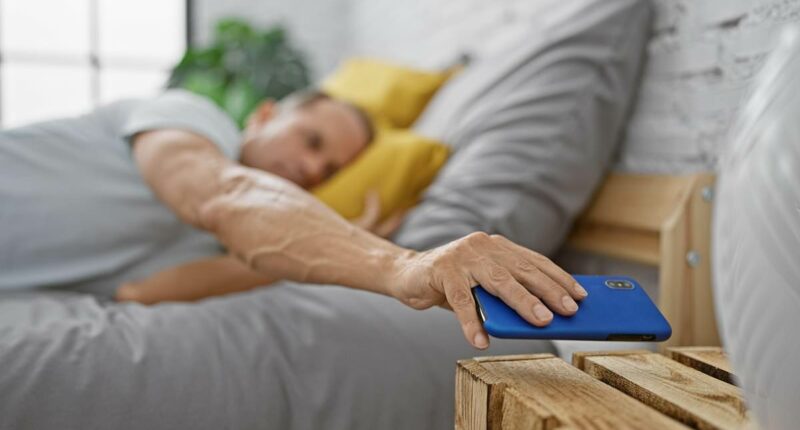Share this @internewscast.com
A holistic doctor has revealed the duration needed to avoid screens before bed for optimal rest, a discovery that might surprise you. This information was shared on TikTok by Dr. Janine Bowring, a Canada-based expert with a career spanning over 25 years. In her video, she labeled this advice as her top sleep recommendation for women over 40.

“Are you waking up at 3 am?” she queried at the video’s start. “Well, your screen time before bed might be to blame,” she explained. Dr. Bowring recommended avoiding screens for at least two hours prior to bedtime to ensure quality sleep. “The blue light suppresses melatonin, disrupting your sleep,” she elaborated.

She noted that melatonin is vital for regulating the sleep-wake cycle and circadian rhythms. “Evening exposure to that blue light can delay sleep onset and diminish sleep quality,” she added. A study published in March in Frontiers in Psychiatry found that just an extra hour of screen time before bed reduced sleep by 24 minutes.

The study also linked increased screen time to a 59 percent higher risk of insomnia. Dr. Bowring emphasized that screen time might be the cause of waking up at night. “So, my advice is to shut off screens at least two hours before bed, and if you must use them, wear blue-light blocking glasses after sunset,” she advised.

Limiting screen time before bed is not the only naturopathic advice Dr. Bowring has shared. In January, she suggested that taking fewer breaths could be key to a longer life. “The average adult takes about 15 to 20 breaths per minute, which is too much,” she noted at the time.

“If you can reduce your breathing to about 5.5 breaths per minute, it’s linked to longevity,” she continued. The doctor compared humans to animals like dolphins and whales that take fewer breaths and live much longer. She pointed out that these mammals only breathe three to five times per minute.

‘Whereas, a mouse takes 90 to 250 breaths per minute, and they only live two to seven years,’ she explained. ‘Stress, as we know, when we’re stressed out, we breathe more quickly, and we know that stress is definitely correlated with a shorter life, so my tip here is to consciously breathe, slowing down the breath,’ the doctor continued. ‘This is one of the reasons why meditation and yoga can be really powerful and helping you to live longer,’ she concluded.








